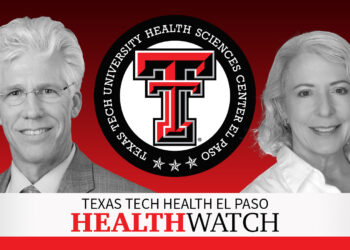Some people are said to have old souls. Some may have old hearts, too.
Many Americans, particularly men with less education, lower income, and those from certain minority groups, have a “heart age” that is much older than what the calendar may indicate, according to a new tool developed by researchers at Northwestern University and published on July 30 in JAMA Cardiology.
Sadiya Khan, MD, a cardiologist at Feinberg School of Medicine, Northwestern University, in Chicago, and her colleagues wanted to simplify how clinicians communicate cardiovascular risk to patients, making it easier to interpret and understand.
“It’s really important that risk is used in how we manage patients in preventive cardiology, but it can be really challenging to interpret the results,” she said. “What does a 7.5% 10-year risk mean, for example?”
Khan and her colleagues developed a tool to calculates a person’s “heart age” based on known cardiovascular risk factors such as blood pressure, cholesterol, diabetes, and smoking status. A 50-year-old with several high-risk factors could have a heart age that is equivalent to a 65-year-old with an optimal risk profile — a revelation that may help prompt them to take action on reducing their risk, Shah said.
Risk age calculations are not new — the European Society of Cardiology’s 2021 guidelines on prevention of cardiovascular disease allow such predictions, and they were also developed for the Framingham risk model. But Khan wanted to update the concept using the newer American Heart Association’s PREVENT equations, and to take advantage of the growing public awareness of healthy aging.
To evaluate the tool Khan’s team tested it on more than 14,000 US adults aged 30-79 with no history of cardiovascular disease, using data from the National Health and Nutrition Examination Survey. On average, women in the survey had a chronological age of 51.3 years, but a heart age of 55.4 years, whereas for men the disparity was even greater: an average chronological age of 49.7 years but an average heart age of 56.7 years.
Socioeconomic factors, such as education and income, also had a big effect on heart age. Among those with a high school education or less, more than one fifth of women, and nearly one third of men, had a heart age more than 10 years older than their true age.
The gap was also significantly wider among members of certain racial and ethnic minorities. Black men had a heart age 8.5 years older than their true age vs 7.9 years older for Hispanic men, 6.7 years older for Asian men, and 6.4 years older for White men. The gaps were 6.2 years for Black women, 4.8 years for Hispanic women, 3.7 years for White women, and 2.8 years for Asian women, according to the researchers.
“I think some of the social factors that we highlighted where an individual’s heart age might be older than their actual age, while not surprising, are helpful to see the health of the nation,” Khan said.
The authors of an editorial accompanying the journal article wrote the new tool “reframes risk in a more intuitive, personally relevant way” and combines epidemiology with behavioral psychology.
“This strategy taps into an intuitive grasp of time and aging, a concept more emotionally salient than a probabilistic 10-year risk estimate and may help bridge the persistent gap between knowledge of risk and engagement in health-promoting behavior,” they wrote.
Presenting risk in this way could be particularly useful for younger people, whose lower absolute risk means they seldom think about ways they can improve their cardiovascular health, according to Khan and her colleagues.
The team has created a free online version of the heart age calculator, but Khan said it is intended to be used in consultation with a physician.
“Our goal is not to have this be patient-facing but to have it be targeted to clinicians to help support that patient-clinician discussion,” she said. “A tool like this is only as useful as the conversation that follows about the opportunities to promote or maintain heart health in optimizing your heart age.”
Khan reported no relevant financial conflicts of interest.
Brian Owens is a freelance journalist based in New Brunswick, Canada.
Source link : https://www.medscape.com/viewarticle/your-heart-may-be-older-than-you-think-2025a1000k5z?src=rss
Author :
Publish date : 2025-07-30 15:05:00
Copyright for syndicated content belongs to the linked Source.











